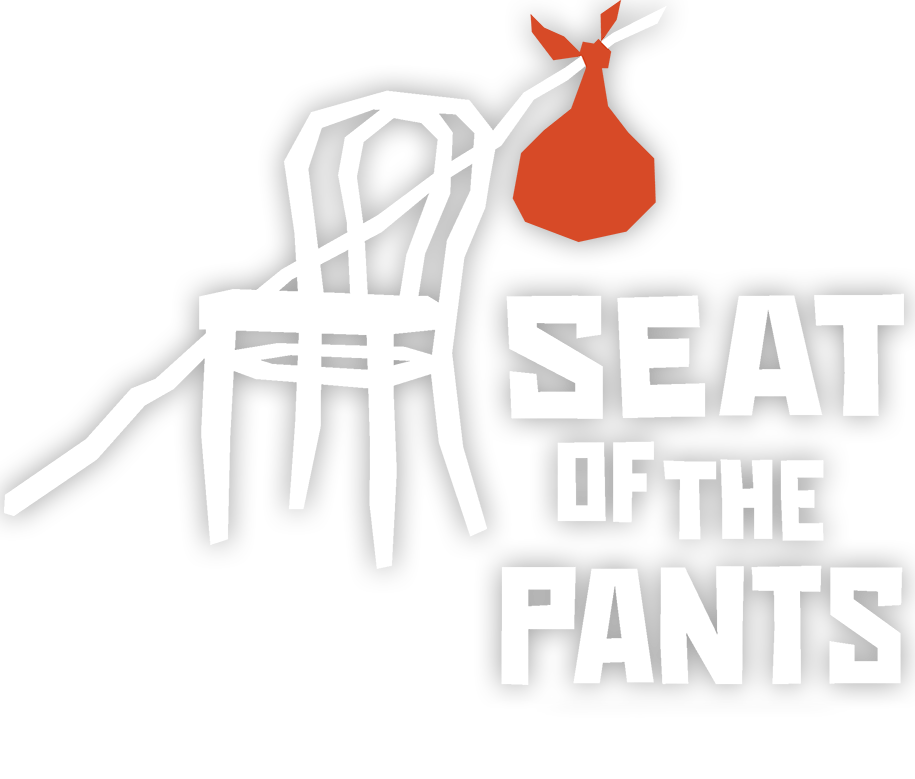A YEAR IN WORKSHOPS: CONFLICT, POLARITY, TOOLS - OH MY!
This week, we wrapped up our year-long commitment to four free artist workshops with our culminating session: Devised Theatre Practices. Each year, our goal is to create opportunities for artistic exploration that are both meaningful and accessible. We remain committed to removing as many barriers as possible so that artists from all backgrounds and disciplines can participate, explore, and grow.
This year’s lineup included workshops on Script Analysis and Dramaturgical Composition, Scene Study and Exploration using the Michael Chekhov Technique, An Introduction to Laban’s Physical Efforts and Scoring, and finally, Devising Practices. While many of these sessions have been especially beneficial for actors, our hope is that there is broader inclusive opportunity: we design these workshops to welcome directors, playwrights, designers, educators, and even passionate audience members. In our view, a more holistic understanding of the theatrical process can only enhance collaboration—and deepen appreciation, whether you’re onstage, backstage, or in the front row.
One of the core values driving these gatherings is our dedication to process over product. We believe that ownership of technique and familiarity with various tools doesn’t just benefit the performer; it elevates the entire collaborative process. Whether you’re blocking a scene, crafting a costume, designing a light cue, or simply watching attentively, understanding the nuances of the art form can lead to a more enriching experience.
This past Wednesday, during our final workshop, our ensemble fiercely explored how devising principles can be applied across disciplines. Whether you’re a playwright shaping a narrative, a director organizing a rehearsal, an actor navigating text, or a designer interpreting a world—we all rely on the same creative impulses: curiosity, clarity, responsiveness, and the courage to make bold choices.
Speaking personally, it has been a true gift to facilitate these workshops. While I’ve been refocusing more of my own artistic practice toward acting, this series has given me the chance to sharpen my craft as both a teacher and a director. Actors, by nature of the process, often find themselves with regular opportunities to practice, stretch, and collaborate. In any given production, there is anywhere from a few to a couple dozen opportunities for actors to participate within a cast. Directors, on the other hand, rarely get to rehearse directing without the pressure of an imminent production. These workshops offered a rare chance to research, dream, experiment, and receive immediate, meaningful feedback—all without the weight of opening night looming overhead. It was liberating. It was playful. It was the creative sandbox we all need more often. I’m so grateful to all who joined us - thank you, thank you, thank you!
Our first workshop of the year focused on Script Analysis and Dramaturgical Composition. We dove into the architecture of a script—its structure, composition, rhythm, and climaxes—and asked what each of these elements means for the artists who bring it to life. We explored how dramaturgical clarity benefits every collaborator, from the actor making moment-to-moment choices, to the lighting designer sculpting the emotional arc of a scene. Preparation is not the opposite of fun; it’s the groundwork that lets joy and spontaneity flourish.
Our Chekhov Scene Study workshop invited participants to consider how preparation and presence go hand in hand. We worked on developing our responsiveness to scene partners while preserving the freedom to discover in real time. The goal wasn’t to chase a “correct” performance, but to enter the work with intention and playfulness, releasing the burden of perfection in favor of genuine exploration. We honored the script’s design while making space for our own impulses to emerge.
Next came Introduction to Laban’s Physical Efforts and Scoring, a workshop that introduced a new movement vocabulary grounded in psycho-physical principles. We compared this approach with Chekhov’s technique, exploring where philosophies align and where they diverge. Through Laban’s framework, we experimented with scoring short passages of text—discovering how even arbitrary starting points could lead to psychological and emotional insight. We also interrogated the often-paralyzing and yet tempting grip of emotional obligation in our stage work, and emphasized the value of a character’s actions as a driving force: what the character does, not just what they feel.
Finally, our Devised Theatre Practices workshop brought all of this together. Here, we explored tools for generating original material from scratch—a blank page, an empty space, or a spontaneous impulse. This was an ideal space for anyone who’s ever felt overwhelmed by creative freedom. We examined how constraints can fuel creativity, and how stories emerge through specificity. Whether guided by a physical technique, a visual prompt, a narrative theme, or a totally arbitrary starting point, what matters most is the choice to pursue something with concentration and imagination.
In total, we worked with over 70 artists this season. Each session was an invitation to experiment, to fail joyfully, to investigate craft, and to share the room generously. As an educator and practitioner, these moments have been invaluable to my own development. More importantly, I hope they’ve offered others a pathway toward more empowered, fulfilling artistry.
We’re already dreaming up what’s next, and we’d love to have you in the room. Whether you’re a theatre-maker, educator, designer, actor, or enthusiastic observer—there’s a place for you here. Subscribe to our newsletter to be the first to know about upcoming workshops. Let’s continue this journey of exploration together.
See you in the studio.


